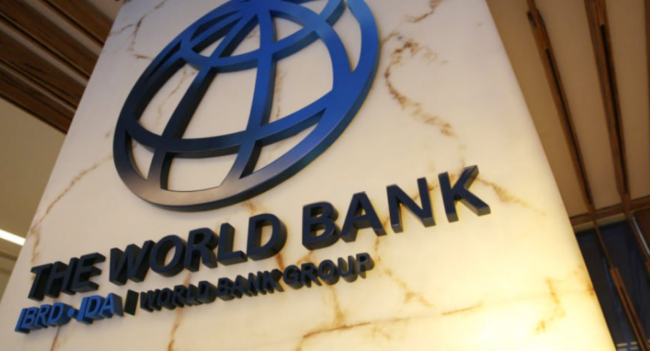The World Bank says a sharp, long-lasting slowdown is expected to hit developing countries hard this year as the global economy weakens.
The bank said this in its latest ‘global economics prospects’ report, released on Tuesday.
It said the 2023 global growth is expected to slow to 1.7 percent — a downgrade from 3 percent earlier projected in June 2022.
The World Bank warned that shocks including higher-than-expected inflation, sudden spikes in interest rates to contain price increases, or a pandemic resurgence could tip the global economy into a recession.
Advertisement
“Given fragile economic conditions, any new adverse development — such as higher-than-expected inflation, abrupt rises in interest rates to contain it, a resurgence of the COVID-19 pandemic, or escalating geopolitical tensions — could push the global economy into a recession,” the report reads.
“This would mark the first time in more than 80 years that two global recessions have occurred within the same decade.
“The global economy is projected to grow by 1.7 percent in 2023 and 2.7 percent in 2024. The sharp downturn in growth is expected to be widespread, with forecasts in 2023 revised down for 95 percent of advanced economies and nearly 70 percent of emerging market and developing economies.”
Advertisement
For Sub-Saharan Africa (SSA), the region which accounts for about 60 percent of the world’s extreme poor, the bank said growth in per capita income over 2023-24 is expected to average just 1.2 percent, a rate that could cause poverty rates to rise.
In his view on the report, David Malpass, World Bank Group president, said the crisis facing development is intensifying as the global growth outlook deteriorates.
“Emerging and developing countries are facing a multi-year period of slow growth driven by heavy debt burdens and weak investment as global capital is absorbed by advanced economies faced with extremely high government debt levels and rising interest rates,” Malpass said.
“Weakness in growth and business investment will compound the already-devastating reversals in education, health, poverty, and infrastructure and the increasing demands from climate change.”
Advertisement
Meanwhile, in the report, the bank said GDP levels in emerging and developing economies by the end of 2024 will be roughly 6 percent below levels expected before the pandemic.
It further noted that, although global inflation is expected to moderate, it will remain above pre-pandemic levels.
NIGERIA’S 2023 ECONOMIC GROWTH PROSPECT DOWNGRADED TO 2.9%
The World Bank also cut Nigeria’s 2023 economic growth projection to 2.9 percent from a previous projection of 3.1 percent.
Advertisement
This, the bank explained, is due to production challenges in the oil sector, rising insecurity, and flooding.
“In Nigeria, growth is projected to decelerate to 2.9 percent in 2023 and remain at that pace in 2024 barely above population growth,” the report reads.
Advertisement
“A growth momentum in the non-oil sector is likely to be restrained by continued weakness in the oil sector. Existing production and security challenges and a moderation in oil prices are expected to hinder a recovery in oil output.
“Policy uncertainty sustained high inflation, and rising incidence of violence are anticipated to temper growth. Growth in agriculture is expected to soften because of the damage from last year’s floods.
Advertisement
“As fiscal position is expected to remain weak because of high borrowing costs, lower energy prices, a sluggish growth of oil production, and a subdued activity in the non-oil sectors.”
Advertisement
Add a comment






